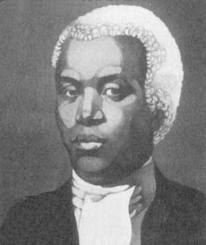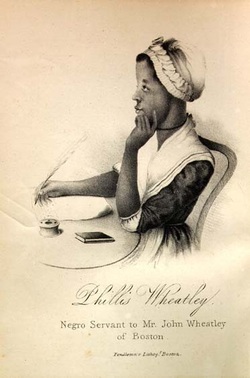
Benjamin Banneker 1731-1806
Was a free African American astronomer, mathematician, surveyor, almanac author and farmer. He is remembered most for almanacs and journals that explained weather conditions movement of the planets and home treatments for illness as well as letters sent between Thomas Jefferson and himself. Banneker explained his views on the issue of slavery in the letters with Jefferson and his almanac of 1793. On August 19, 1791, after leaving the federal capital area, Banneker wrote a letter to Thomas Jefferson, who in 1776 had drafted the Declaration Of Independence. Banneker criticized Jefferson for his proslavery views and was calling for the abolishment of slavery of all African Americans, which he compared to the enslavement of the American colonies by the British. Banneker also quoted lines in the Declaration that expressed justice for African Americans. The letters between Banneker and Jefferson were published as a separate pamphlet and was given wide publicity. His letters helped to influence many abolitionist to use his letters and almanacs to show equal mental abilities of the races.
Was a free African American astronomer, mathematician, surveyor, almanac author and farmer. He is remembered most for almanacs and journals that explained weather conditions movement of the planets and home treatments for illness as well as letters sent between Thomas Jefferson and himself. Banneker explained his views on the issue of slavery in the letters with Jefferson and his almanac of 1793. On August 19, 1791, after leaving the federal capital area, Banneker wrote a letter to Thomas Jefferson, who in 1776 had drafted the Declaration Of Independence. Banneker criticized Jefferson for his proslavery views and was calling for the abolishment of slavery of all African Americans, which he compared to the enslavement of the American colonies by the British. Banneker also quoted lines in the Declaration that expressed justice for African Americans. The letters between Banneker and Jefferson were published as a separate pamphlet and was given wide publicity. His letters helped to influence many abolitionist to use his letters and almanacs to show equal mental abilities of the races.

Phillis Wheatley 1753-1784
Phillis Wheatley was born in 1753 in West Africa and was purchased by a wealthy Boston merchant and tailor John Wheatley. John and Susanna began Phillis's education being tutored by the Wheatley’s eighteen year old daughter Mary. At the age of twelve Phillis began to read Greek and Latin classics and difficult parts of the bible. Stunned by her interest in her education and her natural ability for writting the Wheatley family made Phillis’ education a top priority and she no longer had to labor hard labor as other slaves. Wheatley is the first African-American in United States to have written a book and have her poetry published. Themes in Wheatley's poems are death, religion, and the struggle of African Americans in the U.S. after the American Revolution. She showed that it is possible not only for African American men to be educated but women as well, she gave women a voice about important issues of the time.
Phillis Wheatley was born in 1753 in West Africa and was purchased by a wealthy Boston merchant and tailor John Wheatley. John and Susanna began Phillis's education being tutored by the Wheatley’s eighteen year old daughter Mary. At the age of twelve Phillis began to read Greek and Latin classics and difficult parts of the bible. Stunned by her interest in her education and her natural ability for writting the Wheatley family made Phillis’ education a top priority and she no longer had to labor hard labor as other slaves. Wheatley is the first African-American in United States to have written a book and have her poetry published. Themes in Wheatley's poems are death, religion, and the struggle of African Americans in the U.S. after the American Revolution. She showed that it is possible not only for African American men to be educated but women as well, she gave women a voice about important issues of the time.
